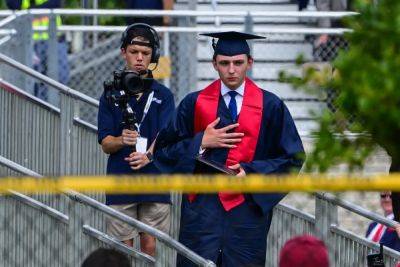This Fall, Hollywood tries to balance box office with the ballot box
Three weeks after the U.S. presidential election in November, Ridley Scott will present his latest big-screen opus. “Gladiator II” returns the prodigious filmmaker to ancient Rome for a story about a power, the survival of Rome and the fate of democracy.
“Hopefully,” Scott says, “it will be a good omen.”
This fall, Hollywood will be trying — with everything from swaggering historical epics like “Gladiator II” to the high-seas adventure of “Moana 2” — to capture the nation’s attention at a time when much of it will be directed at the polls.
Already, Hollywood has played a co-starring role in the election. The Democratic Convention in August was packed with stars like Oprah Winfrey. Republican vice-presidential candidate, JD Vance, was first introduced to many by the 2020 big-screen adaptation of his “Hillbilly Elegy.” And it was George Clooney, who this month stars in the Apple Studios film “Wolfs” alongside Brad Pitt, who was one of the most prominent voices to urge President Joe Biden to step down from the race.
Hollywood, famously progressive, has always had to strike a balance between the liberal leanings of the majority of its creatives with the big-tent demands of pop culture. In recent years, that’s grown increasingly tricky.
At the same time, the movie industry, after several years hobbled by pandemic and strikes, is striving to recapture its all-audiences populism — and all the billions that can come with it. Disney chief Robert A. Iger last year signaled the need “to entertain first,” adding “it’s not about messages.”
This past summer, Disney led Hollywood out of a box-office slump with a pair of billion-earners in “Inside Out 2” and “Deadpool vs. Wolverine.” Ticket sales for the summer rose to $3.7 billion,







